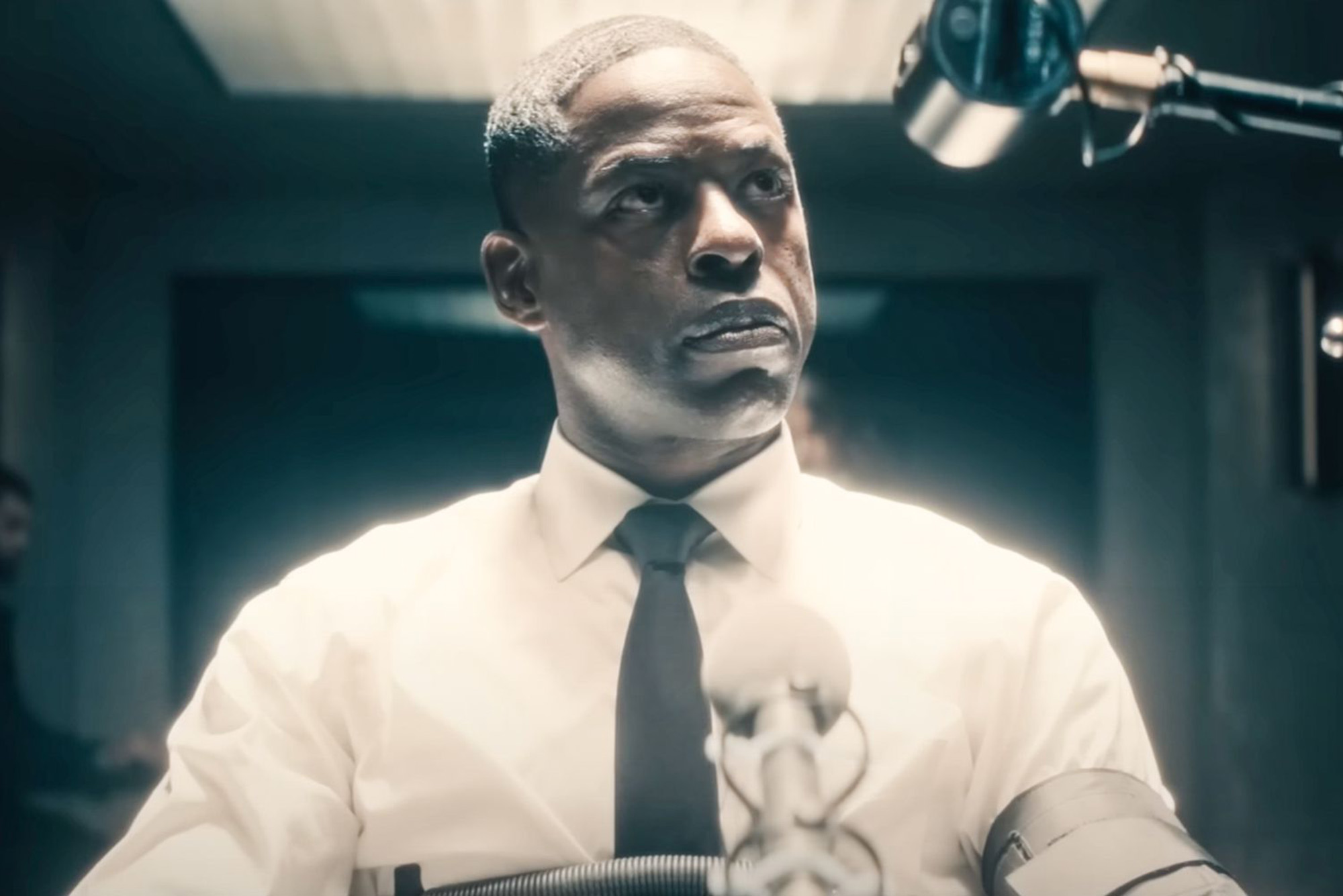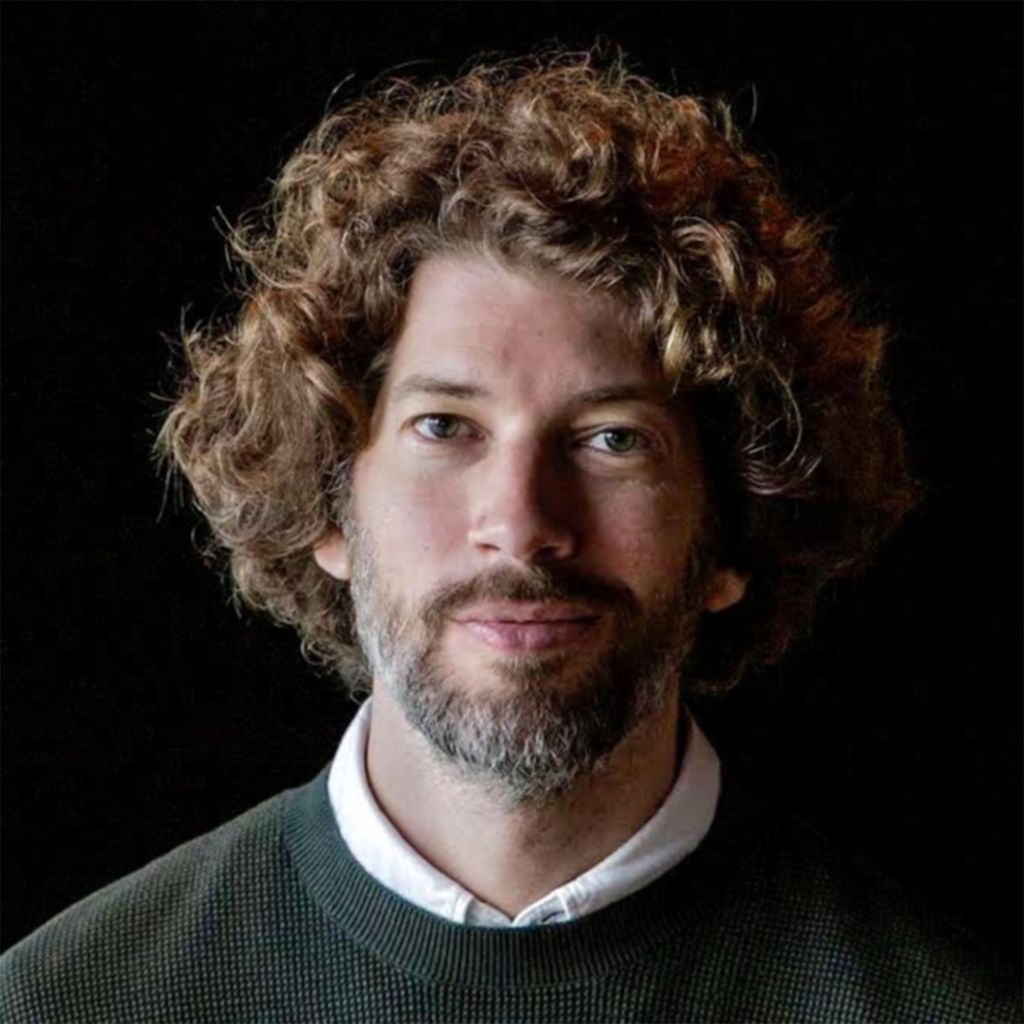Hulu’s Hit Series Paradise Was Shaped in Part by a BU Sociologist
CAS’ Jonathan Mijs explains his behind-the-scenes role

Sterling K. Brown is the star of Hulu’s hit series Paradise. Photo courtesy of Hulu
Hulu’s Hit Series Paradise Was Shaped in Part by a BU Sociologist
CAS’ Jonathan Mijs explains his behind-the-scenes role on the political (and sort of sci-fi) drama
It’s one of the hottest shows on television right now, a gripping political thriller with a sci-fi twist and one of the biggest stars in Hollywood. And behind the scenes of it all, providing technical advice to the writers and show creators, was an unassuming, low-key assistant professor of sociology at Boston University.

How did Jonathan Mijs, a scholar of inequality, education, and belief formation at the College of Arts & Sciences, find himself a technical consultant on the smash drama Paradise, streaming now on Hulu and starring Sterling K. Brown (the Emmy Award–winning actor of This Is Us fame)?
Without giving away any spoilers, the creators of Paradise, as the title implies, needed to create a world that was, well, suspended from reality. And Mijs, who teaches classes such as Social Inequality in America, and Understanding Meritocracy, could bring a unique perspective of social science scholarship to what they needed.
With the show off to a roaring start and critics using phrases like “political thriller” and “powerful, twisty fun,” BU Today traded emails with Mijs about the show, his role, and what the experience was like.
Q&A
with Jonathan Mijs
BU Today: Your bio page describes you as an Arts & Sciences assistant professor of “inequality, education, and belief formation.” That doesn’t exactly sound like the background for someone who works on a sci-fi TV thriller. Can you explain how you got connected to this series?
Mijs: Yes, of course. My foray into the world of television began in 2022, when [show creator] Dan Fogelman’s assistant reached out to me. I knew Dan as the creator of This Is Us and the writer of Crazy, Stupid, Love [the movie starring Steve Carrell] and one of my toddler’s favorites, Cars. I was as puzzled as you are about why he would want to speak with me. I learned that he had seen a TED talk I had given about my research about inequality and meritocracy. And that he was developing—spoiler alert—a sci-fi show set in the near future that required a perfect world for a small number of survivors, a Paradise.
BU Today: What did your role as technical consultant entail, and how was your social sciences background beneficial to the writers?
Mijs: The creators and writers on the show wanted to know what the social sciences had to say about what a perfect society might look like and how one would want to go about designing one. I was brought on to help the writers think this through and to bring in relevant studies and evidence. Over the span of six months, we talked and I prepared a white paper that addressed a whole host of questions confronting the series’ billionaires as they planned for, and started building, Paradise. Then the writers strike happened, and I feared that the project would be done for, but production restarted in 2024 and now we can see the story unfold.
BU Today: What was it in particular about this series that grabbed your attention?
Mijs: Like many of my colleagues in the social sciences, my work tends to focus on the things that are wrong with society. This series is a thought-provoking opportunity to explore what true equality and meritocracy would look like in practice. Now, there are no easy answers to big questions like these. If there were, the world would look a lot different, and the field of sociology would be called “social engineering.” But sociology does have one strong suit. The field originates from a time of economic revolution, political tumult, and sweeping social change, which compelled the founders of sociology to confront a similar set of questions as those pertaining to Paradise: how does a society keep order and cohesion, what makes people accept the legitimacy of their leaders, how and when are unequal outcomes justified?
BU Today: Have you been drawn to working in TV before?
Mijs: I’ve found fiction writers and film and television makers to be some of the most effective in questioning things like the idea that our society operates like a meritocracy, where success simply reflects hard work and talent. Movies like Parasite and Minari put that idea on its head. Television series like Squid Game, Black Mirror, and Severance hold up a mirror to our society and show us where we might be headed. A lot of this goes back to terrific writers like Margaret Atwood, Aldous Huxley, George Orwell, and Philip K. Dick. But the visuals add a new dimension; it makes it harder to look away. As such, their work adds a more visceral, dramatic account of what we try to convey in our scholarly publications and policy papers.
Paradise is now streaming on Hulu. New episodes are released each Tuesday.

Comments & Discussion
Boston University moderates comments to facilitate an informed, substantive, civil conversation. Abusive, profane, self-promotional, misleading, incoherent or off-topic comments will be rejected. Moderators are staffed during regular business hours (EST) and can only accept comments written in English. Statistics or facts must include a citation or a link to the citation.